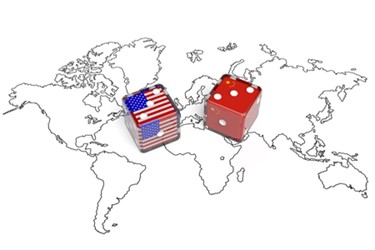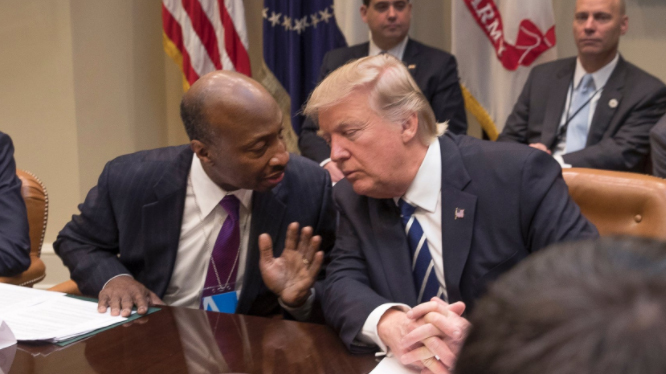President Trump, Communist China, and Pharma Outsourcing

By Louis Garguilo, Chief Editor, Outsourced Pharma

Remarkable for restraint in the face of what she has uncovered, Rosemary Gibson stays politically agnostic in her recently released book, “China Rx: Exposing the Risks of America's Dependence on China for Medicine.”
She does, though, have her moments:
“The turning point in this lopsided trade relationship was the US-China Trade Relations Act of 2000. President Clinton’s predictions are tragic for how wrong they were. To reject permanent normal trade relations with China would be a mistake of hugely historic proportions, he said. The truth is that history will judge free trade with China, rather than fair trade, to have been a blunder of truly historic proportions from which America will never recover.”
As a component of this historic “blunder,” Gibson’s particularly perplexed by the incongruous quiet that has belied an escalating U.S. drug supply-chain dependency on China.
Now enter Donald Trump; nothing is quiet about China anymore.
Our drug industry should join the public discussion.
Politics And Pharma
International politics are rarely discussed in these pages of Outsourced Pharma.
We did, though, wade into the waters with this editorial in April: Biopharma Outsourcing Will Overcome Tariff Troubles.
That was followed by a response to a blog written by my colleague, Chief Editor Rob Wright, over at Life Science Leader magazine (slightly edited here):
“It is the Chinese who long ago embarked on a ‘trade war’ with the United States. President Trump just decided to fight back, whereas past U.S. administrations were satisfied to cede ground year after year… But here is what is most important to us [in the biopharma industry] specifically, and remarkably still unexplored publically: A major nexus between Trump’s “America First” agenda and the pharma industry is in fact China.”
Next came this editorial with Gibson, focused on the growing desire the U.S. public has for obtaining information about exactly where our drugs and their ingredients come from. We want to trust our medicines – and country – are safe.
Which brings us to that political nexus. No president has more seriously publicized the reality of China as direct adversary to the U.S. homeland as the current one. The focus so far has been mostly on trade: automobiles and steel, soy beans and agriculture.
Yet no industry should be a bigger part of the China conversation than pharma. Already, there have been missed opportunities, as we’ll get to in a moment.
Continuous Manufacturing Or Continuous Threat?
China’s biopharmaceutical-quality culture is improving, it’s manufacturing technology advancing, and the FDA is working to increase our drug safety, mainly via more audits of Chinese facilities supplying drugs and drug ingredients to the U.S.
Still, recent events don’t add up to a growing sense of security. And they point to the political calculus at play as the general media now inextricably mix politics with our world of drug manufacturing. Here’s just one example:
Cancer-causing Communists?
“The Chinese communist regime’s health regulator announced the recall of made-in-China pharmaceutical valsartan, which is being subject to a recall in the United States and Europe. The U.S. Food and Drug Administration said on July 13 that 29 types of single and 51 types of combination valsartan medicines are being recalled. The European Medicines Agency (EMA) announced a recall of the drug on July 5 when it was informed by China’s Zhejiang Huahai Pharmaceutical—a major global manufacturer of generic valsartan—that the drug had been contaminated by a substance called N-Nitrosodimethylamine (NDMA), which has been linked to cancer.”
-- as reported by NTD, a New York-based global news and entertainment media (July 30, 2018)
Here’s another item from this July: With political pressures surely adding to the impetus, FDA Commissioner Scott Gottlieb, M.D., announced the formation of a new Drug Shortages Task Force. The intent, according to Gottlieb, “is to look for holistic solutions to addressing the underlying causes for these shortages.”
Here’s a suggestion: Start holistically in China.
The FDA should work this issue until our drug industry informs patients of exactly where their drugs come from.
As for this situation rising to the level of a national threat, Gibson quotes (retired U.S. Army) Brigadier General John Adams. Regarding our reliance on China for drugs and critical ingredients, Adams says we should seriously consider the possibility of a “large scale attack” by a hostile foreign government. “It would cause complete disruption to American society and to our national security. If an enemy releases anthrax, and they control the antidote, the prospect sends chills up my spine.”
And that brings us back to President Trump.
The Trump Threat
Some of you may see the president as a threat himself; be that as it may.
Perhaps more than any president in history, Trump views China as a direct and imminent adversary. He palpably senses the danger emanating from China, businesswise and economically first, and then from the larger perspective of national security. The majority of U.S. citizens agree. According to a recent poll by SurveyMonkey/Axios, “62% of Americans are concerned by China's economic power, 51% by China's technological advancement.”
As big as any threat from China is the one to our drug supply, because of the sheer amount of outsourcing we do to China. Yet the biopharma industry remains mute on the subject. So while Trump battles China, more of the R&D, development and manufacturing of our medicines is outsourced to China.
Missed Opportunity?
An early opportunity for our industry to work directly with the president was lost when Merck’s CEO, Kenneth C. Frazier, abruptly quit Trump’s business advisory council. This precipitated the leaving of other CEOs, leading to the disbandment of a number of councils. Frazier objected to the way Trump characterized a domestic and racially charged situation.
Yet wouldn’t it have been better for Frazier, and other CEOs, to strongly criticize the president as they thought fit – as advisory council members – and wholeheartedly try to get the president to understand their points of view as his close confidants?

photo credit: www.zerohedge.com
Frazier might have progressed to advising the president on issues like China, perhaps focused squarely on IP protections and improving manufacturing opportunities in the U.S. Trump certainly could have benefited from the opinions of those business leaders who were sitting around the now nonexistent advisory tables. Maybe we’d have had a less tariff-centered approach …
There’s a final, crucial point here, one I believe Trump knows well, and in “China Rx,” Gibson brings out concisely.
Those U.S. companies who think working with China on China’s terms is going to have a long-run benefit, might want to think again.
Establishing facilities in China (as demanded by the government) – or outsourcing to development and manufacturing facilities there – purportedly for the future opportunity to sell into the Chinese market may be a fool’s errand.
Gibson quotes a source at the U.S. Chamber of Commerce: “The belief by foreign companies that large financial investments, the sharing of expertise, and significant technology transfers would lead to an ever-opening China market is being replaced by boardroom banter that win-win in China means China wins twice … Western drug makers are already being cut out of big deals [for the sale of drugs domestically in China].”
That is, U.S. pharma jobs and technology gets offshored to China, and subsequently these Chinese operations undersell and displace “anything left in the U.S., and puts the U.S. consumer under the control of Chinese concerns.”
Consider the “Made in China 2025” initiative: It targets the pharmaceutical industry, is a "real existential threat to U.S. technological leadership," according to The Council on Foreign Relations, and is a blueprint for transforming the country into a global high-end manufacturing powerhouse in time for the hundredth anniversary of the founding of the People’s Republic of China in 2049.
If our drug-supply reliance on China does not change, U.S. patients may be forced to celebrate as well.
